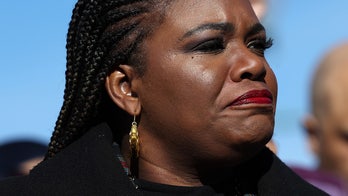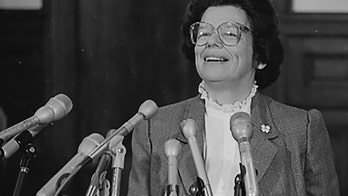There are multiple watchdogs groups ready to try and prevent voter fraud on Election Day.
The U.S. Department of Justice says it will deploy more than 400 election monitors to 18 states to keep tabs on the electoral process. Their mission is to prevent fraud, intimidation, or voter suppression.
Several states have established their own hotlines, and in New York City voters can even tweet in reports of problems.
Some citizens' groups, like Election Integrity Watch in Minneapolis, plan to deploy their own poll watchers.
"Our mission is to ensure fair and honest elections," said Jeff Davis, a founder of Election Integrity Watch and President of the conservative advocacy group, Minnesota Majority. "Over the course of the last elections here in Minnesota, we have discovered numerous problems, and government officials were reluctant to acknowledge those problems or investigate. We've concluded that it is up to us, we the people, to ensure the integrity of elections."
Just last week authorities in Minnesota charged 47 people with voter fraud from the 2008 election, and Davis believes the actual number is higher this year. They even held a news conference with Ian Hodge, who received an election postal verification card saying he is registered to vote, and listing his polling place. The only problem is that Mr. Hodge is not an American citizen. He's British.
"If people are aware that there are going to be people watching the election process," he says, then "that will maybe dissuade those people who have committed fraudulent voting in the past."
But others fear that such groups can lead to voter intimidation.
Wendy Weiser, of the NYU's Brennan Center for Justice, told Fox News "what we are concerned with is that when there are large scale mobilization around ballot security efforts, they often cross the line and used tactics that have the affect of suppressing legitimate votes. And this has happened time and again and we are worried that this may happen again this time."
There are other problems that are being reported to us at Voterfraud@Foxnews.com, from viewers who had requested absentee ballots that never arrived, to military voters, stationed here in the States, who never received their ballots either.
Viewers in Nevada and North Carolina, among some other states, allege that their votes were switched when they voted by touch screen voting machines. While the election board in North Carolina says no actual wrong votes were counted, and election authorities in Nevada call the claims "unsubstantiated rumors," voters who contact Fox News are adamant that there have been foul-ups.
One viewer from North Carolina wrote that "the buttons for each party are so close together, that if a person tries to press the Republican button with the pad of their finger, it is possible that their fingernail might accidently press the Democratic button."
"Accident? I don't think so," wrote another. "Be careful out there."
There are many concerns about absentee ballots.
In Bucks County, Pennsylvania, the local prosecutor says there appears to be fraudulent absentee ballot applications. 20,000 absentee ballots and applications are being sequestered pending the investigation. The Republicans accuse Democrats of voter fraud, the Republicans say the Democrats are trying to suppress the vote.
But some fear that despite the efforts of election officials, not enough people will be watching for potential voter fraud, especially in razor close races.
"Voter fraud is tough to be successful in blow-out races," says voting expert Hans von Spakovsky of the Heritage Foundation.
"But when you have a close race, that's when it can make a difference. Any place where we have very close elections, there's always going to be the potential there that voter fraud may make a difference, and that's where we are going to have to be really careful to be sure that doesn't happen."
Right now in Troy, New York a voter fraud investigation from the 2009 Working Families Party primary has resulted in authorities actually taking the DNA from 9 public officials, including 5 Democratic City Councilmen, and Democratic party operatives. They will compare the DNA samples to those recovered from allegedly forged absentee ballots. The number of suspected ballots is just over 50, enough, say political observers, to fix an election.




